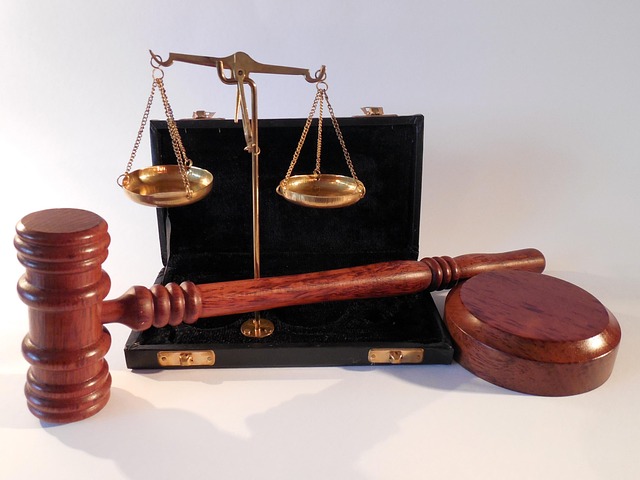Prosecutorial discretion, a critical component of the criminal justice system, allows prosecutors to decide case handling, including charging and sentencing decisions, guided by factors like crime severity, evidence strength, victim impact, public interest, and recidivism risk. While offering flexibility, this power is constrained by legal and ethical guidelines. Enhancing transparency in these processes, crucial for public trust, requires understanding the factors influencing prosecutorial discretion decisions, particularly in white-collar and economic crimes. Criminal defense attorneys must navigate these factors through strategies like plea bargaining or evidence challenge to achieve optimal outcomes for their clients.
Criminal Defense Attorneys play a crucial role in navigating complex legal landscapes, especially when understanding and countering prosecutorial discretion. This article delves into the intricate web of factors influencing prosecutorial decision-making, providing a comprehensive overview for defense attorneys. We explore key components of criminal cases and strategic approaches to effectively navigate the discretionary process. By analyzing these elements, attorneys can better defend their clients, ensuring justice within the legal system.
- Understanding Prosecutorial Discretion: The Power and Limitations
- Key Factors in Prosecuting Criminal Cases: A Comprehensive Look
- Strategies for Criminal Defense Attorneys: Navigating the Discretionary Process
Understanding Prosecutorial Discretion: The Power and Limitations

Prosecutorial discretion plays a significant role in the criminal justice system, as prosecutors hold immense power in determining how cases are handled. This authority allows them to decide whether to charge, pursue, or dismiss certain offenses, taking into account various factors influencing their decisions. Key elements include the severity of the crime, evidence strength, potential sentence length, and public interest. When it comes to white-collar and economic crimes, for instance, prosecutors may weigh the impact on victims, the level of sophistication involved, and the defendant’s likelihood of reoffending before deciding whether to avoid indictment altogether.
While prosecutorial discretion offers flexibility, it also comes with limitations. These decisions are subject to legal and ethical guidelines, ensuring fairness and preventing arbitrary actions. Across the country, there have been efforts to increase transparency and accountability in these processes, as understanding the factors influencing such decisions is crucial for maintaining public trust in the criminal justice system.
Key Factors in Prosecuting Criminal Cases: A Comprehensive Look

In the intricate world of criminal justice, understanding the key factors that influence prosecuting decisions is paramount. Prosecutorial discretion plays a pivotal role in shaping the course of criminal cases, from charging choices to plea negotiations. Several elements guide these critical decisions, each carrying its own weight and context. Among them, the strength of evidence, the potential impact on victims, and societal interests like public safety stand out as primary considerations. Additionally, the unprecedented track record of similar cases within the philanthropic and political communities often shapes prosecutors’ strategies, underscoring the broader implications of legal proceedings.
Beyond these, factors such as defendant’s prior history, cooperation with investigators, and willingness to accept responsibility can significantly alter prosecution trajectories. General criminal defense attorneys must be adept at navigating these nuances, providing clients with robust representation that accounts for both the law and the human element at play in each case. This strategic approach ensures fairness while acknowledging the complex web of decisions that ultimately determine outcomes in the criminal justice system.
Strategies for Criminal Defense Attorneys: Navigating the Discretionary Process

Criminal Defense Attorneys often find themselves navigating complex strategies when it comes to the discretionary process. This involves understanding the intricate factors that influence prosecutorial decisions, which can significantly impact their cases. Key among these are the general criminal defense tactics employed by lawyers, who must weigh the pros and cons of various approaches to build a robust defense strategy. These strategies range from plea bargaining, where attorneys negotiate with prosecutors to reduce charges or sentences, to challenging evidence and testimony in court, ensuring a fair trial for their clients, be it corporate or individual.
The art of navigating this process also requires defenders to consider the potential outcomes of different actions. For instance, opting for a high-stakes jury trial might yield substantial media attention, potentially swaying public opinion in unexpected ways. Conversely, a well-executed plea bargain could result in more favorable terms for the client while saving significant time and resources. Thus, Criminal Defense Attorneys must be adept at balancing these strategies, taking into account the specific circumstances of each case, to achieve the best possible outcome for their corporate or individual clients.
Criminal defense attorneys play a crucial role in navigating the complexities of criminal justice, especially when understanding and leveraging factors influencing prosecutorial discretion decisions. By comprehending both the power and limitations of prosecutors’ authority, these legal professionals can develop effective strategies to defend their clients. This article has explored key components of criminal prosecution and provided insights into how defense attorneys can use these insights to their advantage, ultimately ensuring a fair and just outcome for all involved.






